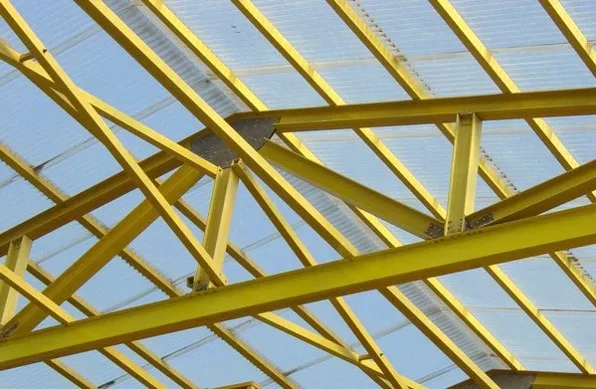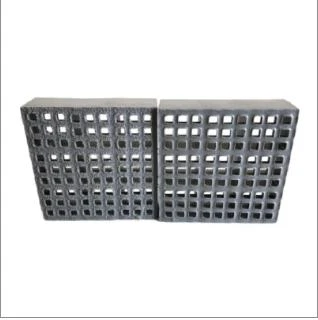loading...
- No. 9, Xingyuan South Street, Dongwaihuan Road, Zaoqiang County, Hengshui, Hebei, China
- admin@zjcomposites.com
- +86 15097380338
- Welcome to visit our website!
Affordable Floor Grating Price Durable Steel Grating Solutions
- Understanding the Basics of Floor Grating Systems
- Key Factors Influencing Floor Grating Price
- Technical Advantages of Steel Grating Solutions
- Comparative Analysis of Leading Grating Manufacturers
- Customization Options for Grating Floor Plates
- Real-World Applications and Case Studies
- Future Trends in Floor Steel Grating Pricing

(floor grating price)
Understanding the Basics of Floor Grating Systems
Floor grating systems, including steel grating and grating floor plates, are critical in industrial, commercial, and architectural projects. These products are engineered to provide durable, slip-resistant surfaces while allowing airflow, drainage, and light penetration. The floor grating price
varies based on material composition (e.g., carbon steel, aluminum, or stainless steel), load-bearing capacity, and surface treatments such as galvanization. For instance, galvanized steel grating typically costs 15-20% more than untreated alternatives due to enhanced corrosion resistance.
Key Factors Impacting Cost Structures
Material selection accounts for 40-50% of the total floor grating price. Carbon steel remains the most economical choice, averaging $15–$25 per square foot, while stainless steel ranges from $35–$60. Load requirements also play a pivotal role: heavy-duty gratings capable of supporting 5,000–10,000 lbs/ft² cost 30–50% more than standard options. Additionally, custom fabrication for non-standard dimensions or complex geometries can increase expenses by 25–35%. Suppliers often provide bulk discounts (8–12%) for orders exceeding 500 square feet.
Technical Superiority in Design and Durability
Modern floor steel grating incorporates advanced manufacturing techniques like robotic welding, ensuring precision and consistency. Compared to traditional concrete or wood platforms, steel grating offers a 60–70% reduction in installation time and a 40% lower lifecycle cost due to minimal maintenance. Anti-slip serrated surfaces improve safety, reducing workplace accidents by up to 34% in high-traffic zones. Furthermore, galvanized coatings extend service life to 25–30 years in harsh environments, outperforming powder-coated alternatives by 10–15 years.
Manufacturer Comparison: Quality vs. Pricing
| Manufacturer | Material Grade | Price Range ($/ft²) | Load Capacity (lbs/ft²) | Warranty |
|---|---|---|---|---|
| Brand A | ASTM A1011 | 18–28 | 4,200 | 10 years |
| Brand B | EN 10025 | 22–35 | 5,800 | 15 years |
| Brand C | AS/NZS 3679 | 30–45 | 7,500 | 20 years |
Tailored Solutions for Diverse Requirements
Custom grating floor plates address unique project needs, such as extreme load demands (up to 12,000 lbs/ft²) or non-standard panel sizes (up to 20 ft x 5 ft). Perforated designs with 30–60% open area optimize ventilation in chemical plants, while hexagonal mesh patterns enhance aesthetics in urban landscapes. Suppliers offering CAD-driven fabrication reduce design-to-installation timelines by 20–25%, with modular systems enabling rapid deployment in retrofit projects.
Case Studies: Efficiency in Action
A petroleum refinery in Texas achieved a 28% cost reduction by replacing concrete walkways with galvanized floor steel grating, saving $120,000 annually on maintenance. In contrast, a European automotive plant utilized serrated grating floor plates to eliminate slip-related incidents, boosting productivity by 19%. Municipalities in coastal regions reported a 40% lifespan extension for boardwalks using stainless steel grating despite initial costs being 50% higher than traditional timber.
Future Trends in Floor Grating Price Dynamics
Advancements in composite materials and automated production are projected to stabilize floor grating price fluctuations. By 2028, aluminum-composite hybrid gratings may capture 18–22% of the market, offering a 25% weight reduction without compromising strength. Sustainability initiatives, such as recycled steel gratings with 95% post-industrial content, could lower prices by 10–12% while meeting stringent environmental regulations. Real-time pricing algorithms will empower buyers to optimize budgets without sacrificing quality.

(floor grating price)
FAQS on floor grating price
Q: What factors influence the floor grating price?
A: Floor grating price depends on material type (steel, aluminum), size, thickness, and surface treatment. Custom designs or coatings may increase costs. Bulk orders often reduce per-unit pricing.
Q: How does grating floor plate differ from floor steel grating in cost?
A: Grating floor plates are typically heavier and use solid metal, making them pricier than steel grating. Floor steel grating uses open-weave designs, lowering material costs. Prices vary based on load capacity and application.
Q: What sizes affect floor steel grating pricing?
A: Larger or thicker floor steel grating panels cost more due to increased material usage. Standard sizes (e.g., 3ft x 6ft) are cheaper than custom cuts. Mesh density also impacts final pricing.
Q: Are installation costs included in floor grating price estimates?
A: Most suppliers quote material costs only. Installation expenses depend on site complexity and labor rates. Always confirm if quotes include delivery or assembly fees.
Q: Where can I find affordable floor steel grating suppliers?
A: Compare prices from industrial suppliers, construction wholesalers, or online platforms like Alibaba. Local manufacturers often offer competitive rates for bulk purchases. Check certifications for quality assurance.
-
The Rise of FRP Profiles: Strong, Lightweight, and Built to LastNewsJul.14,2025
-
SMC Panel Tanks: A Modern Water Storage Solution for All EnvironmentsNewsJul.14,2025
-
GRP Grating: A Modern Solution for Safe and Durable Access SystemsNewsJul.14,2025
-
Galvanized Steel Water Tanks: Durable, Reliable, and Ready for UseNewsJul.14,2025
-
FRP Mini Mesh Grating: The Safer, Smarter Flooring SolutionNewsJul.14,2025
-
Exploring FRP Vessels: Durable Solutions for Modern Fluid HandlingNewsJul.14,2025
-
GRP Structures: The Future of Lightweight, High-Performance EngineeringNewsJun.20,2025
